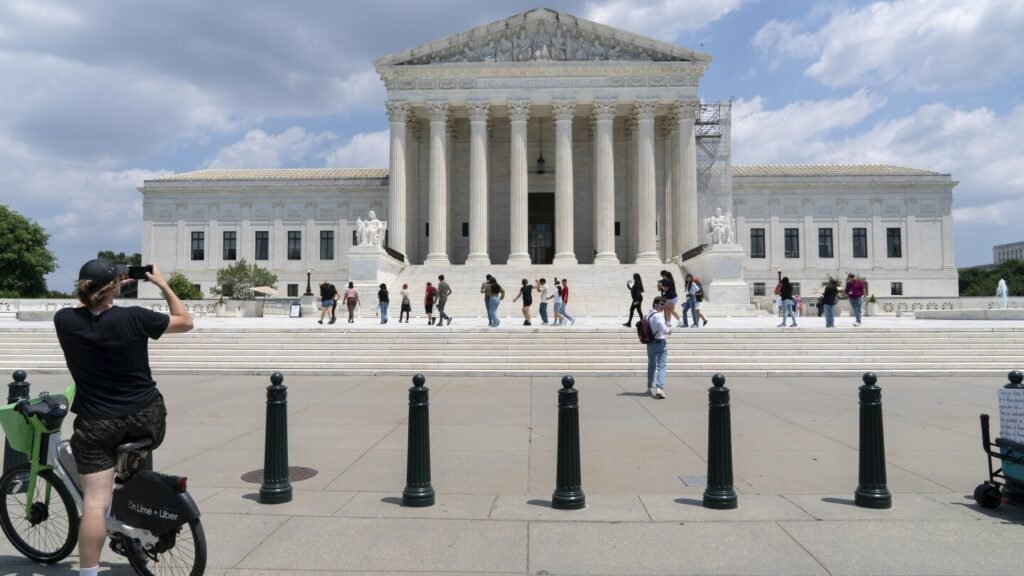Singaporean, 16, under ISA restriction order after being radicalised by far-right extremist ideology

Singapore
Singaporean teen who identified as white supremacist placed under ISA restrictions for far-right extremism
The teenager strongly identified as a white supremacist and aspired to conduct attacks overseas, says the Internal Security Department.
File photo of a person using a laptop. (File photo: iStock/Chainarong Prasertthai)
New: You can now listen to articles.

Sorry, the audio is unavailable right now.
Please try again later.
This audio is AI-generated.
- The student is the second Singaporean to be dealt with under the Internal Security Act for being radicalised by far-right extremist ideologies
- He was exposed to violent extremist material online in 2022 and developed an intense hatred of communities typically targeted by far-right extremists, including African Americans, Arabs and LGBTQ individuals
- Although he hoped to be recruited for violent attacks overseas, the student did not take steps to actualise his aspirations beyond searching online for weapons
SINGAPORE: A 16-year-old Singaporean student who was self-radicalised by far-right extremist ideologies has been issued a restriction order under the Internal Security Act (ISA).
The teenager, who is of Chinese ethnicity, identified as a white supremacist and aspired to conduct attacks overseas, the Internal Security Department (ISD) said on Wednesday (Jan 24).
“However, beyond online searches for weapons, he did not take steps to actualise his attack aspirations as he lacked the financial resources and know-how to do so,” ISD said.
It added that he had no plans to conduct any attacks in Singapore.
The student, who was not named, was in Secondary 4 when he was placed under a restriction order in November 2023. This means he is not allowed to travel out of Singapore, access the internet or social media without the approval of the ISD director, among other restrictions.
He is the second Singaporean to be dealt with under the ISA for being radicalised by far-right extremist ideologies.
The first – a 16-year-old Protestant Christian of Indian ethnicity – was detained in December 2020 after planning to attack two mosques in the Woodlands area.
Authorities said at the time that he had made “detailed plans and preparations to conduct terrorist attacks” against Muslims, and that he was influenced by the manifesto of Brenton Tarrant – the man who attacked mosques in Christchurch, New Zealand.
The youth has since been released from detention, ISD said on Wednesday, adding that he had made “good progress” in his rehabilitation and is assessed to no longer pose an imminent security threat.
SELF-RADICALISATION PROCESS
Providing details of the latest case, ISD said the teenager was exposed to violent extremist material online in 2022, after chancing upon videos by American far-right personality Paul Nicholas Miller.
Miller is known for promoting a race war and espouses white supremacist and neo-Nazi rhetoric. He has been tied to multiple far-right extremist organisations overseas, including the Proud Boys and the Boogaloo movement.
By early 2023, the teenager had developed an intense hatred of communities typically targeted by far-right extremists, including African Americans, Arabs and LGBTQ individuals, said ISD.
“Fuelled by online extremist rhetoric, he came to believe that African Americans were responsible for a significant percentage of crime in the United States, and deserved to ‘die a horrible death’,” it added.
“He also perceived illegal Arab immigrants as having committed violent attacks against white populations in Western countries.”
ISD said the teenager subscribed to the Great Replacement Theory commonly referenced by far-right terrorists like the Christchurch attacker, which propagated the idea that the indigenous white population in Western countries were in danger of being replaced by non-white immigrants.
“Such ethno-nationalist beliefs convinced him that non-white communities such as African Americans and Arabs should be driven away from white-majority countries,” said ISD.
“The youth participated in several far-right online chat groups and channels, where he shared violent anti-African American videos, as doing so gave him a sense of belonging to the white supremacist community.”
When asked how this case came to light, ISD told CNA it was unable to comment due to operational concerns.
It added that the ISA remains a “relevant and effective legislative tool” that allows for pre-emptive action to be taken to neutralise any security threats, such as in the case of the two youths.
“Regardless of the cause or extremist ideology involved, the authorities will not hesitate to take actions against any Singaporean or person residing in Singapore who supports, engages in, or attempts to engage in, armed violence,” it said.
Related:
Growing concern with youth radicalism, terrorism threat to Singapore remains high: ISD
Terrorist groups increasingly targeting youths, Singapore a ‘prized target’: DPM Wong
ASPIRATIONS TO PARTICIPATE IN ATTACKS
According to the ISD, the teenager had hoped to be recruited for violent attacks by white supremacist groups overseas to “fight for the whites”.
He considered travelling to countries such as France, Italy, the US and Russia to participate in attacks against his “vilified communities”.
“Specifically, he shared his interest to conduct a mass shooting in the US in 10 years’ time in a far-right online chat group,” said the ISD.
The agency added that while he searched online for weapons, he did not take steps to actualise his attack aspirations as he lacked the financial resources and know-how to do so.
“The youth had no plans to conduct any attacks locally, as he felt that these communities had not caused trouble in Singapore,” said ISD.
“There was no indication that the youth had tried to influence his family or friends with his violent extremist views, nor were they aware of his attack ideations.”
Also read:
Vital to have a capable and vigilant Internal Security Department to protect Singapore: PM Lee
The road to redemption: How two radica
Be the first to write a comment.







